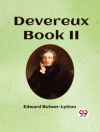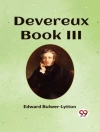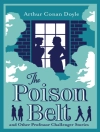Pipes O’Pan at Zekesbury by James Whitcomb Riley is a collection of poetry that celebrates rural life in the American Midwest. Riley’s works are known for their simple language and nostalgic tone, often depicting scenes from the countryside and evoking a sense of longing for the past. In this particular collection, Riley explores the themes of nature, love, and the passage of time, using vivid imagery and folksy charm to captivate his readers. The poems in Pipes O’Pan at Zekesbury offer a glimpse into a bygone era, where life was simpler and the natural world held a sense of wonder and enchantment. Riley’s literary style is characterized by its authenticity and sincerity, making his poetry both accessible and heartfelt for readers of all ages. This collection is a testament to Riley’s skill as a poet and his ability to evoke emotion through his words. James Whitcomb Riley, known as the
लेखक के बारे में
James Whitcomb Riley, born on October 7, 1849, in Greenfield, Indiana, was a prolific American writer and poet, hailed for his use of Hoosier dialect in poetry, a colloquial language specific to his home state. Often referred to as the ‘Hoosier Poet’ or the ‘Children’s Poet, ‘ Riley’s literary contributions are marked by a distinct blend of humor and sentimentality, capturing the everyday life of rural communities in the late 19th and early 20th centuries. He published over 1, 000 poems and had a successful career on the lecture circuit, endearing him to American audiences. One of his notable works, ‘Pipes O’Pan at Zekesbury’ (1888), is a collection that showcases his skill in capturing the rustic charm of Indiana’s countryside and the simplicity of its folk. Riley’s style is characterized by a lyrical rhythm and a penchant for nostalgic themes, often celebrating childhood and nature. His poetry, while accessible due to its use of regional dialects and universal themes, was also a significant contribution to American literature for its preservation of the disappearing regional linguistic idiosyncrasies. Riley left an indelible mark on American poetry before his death on July 22, 1916, and his legacy continues to be celebrated, particularly in his home state, where his birthday is commemorated as James Whitcomb Riley Day.












